This Friday, Austin’s best indie rock band Spoon are releasing their 10th studio album, Lucifer on the Sofa. It’s a pretty damn good album, and no smile milestone to reach 10 albums, including multiple alt classics. Spoon’s consistency is almost unparalleled – every released since the skinned-knee intensity of their 1996 debut album Telephono scratches a certain itch that other bands can’t quite reach.
Across their discography, several EPs, and a compilation, the core duo of Britt Daniel and Jim Eno, aided by a rotating cast of talents who helped mold the band in new poses, have created a timeless act. They’re the kind of band that appeals to a variety of people, all of whom have a different favorite Spoon style.
We at BPM are big fans of the Texans, and wanted to honor them by attempting to rank our 20 favorite songs from across their catalog. It was a difficult task – and this order could be completely change again this weekend.
Listen to a playlist of our Top 20 Spoon songs on Spotify
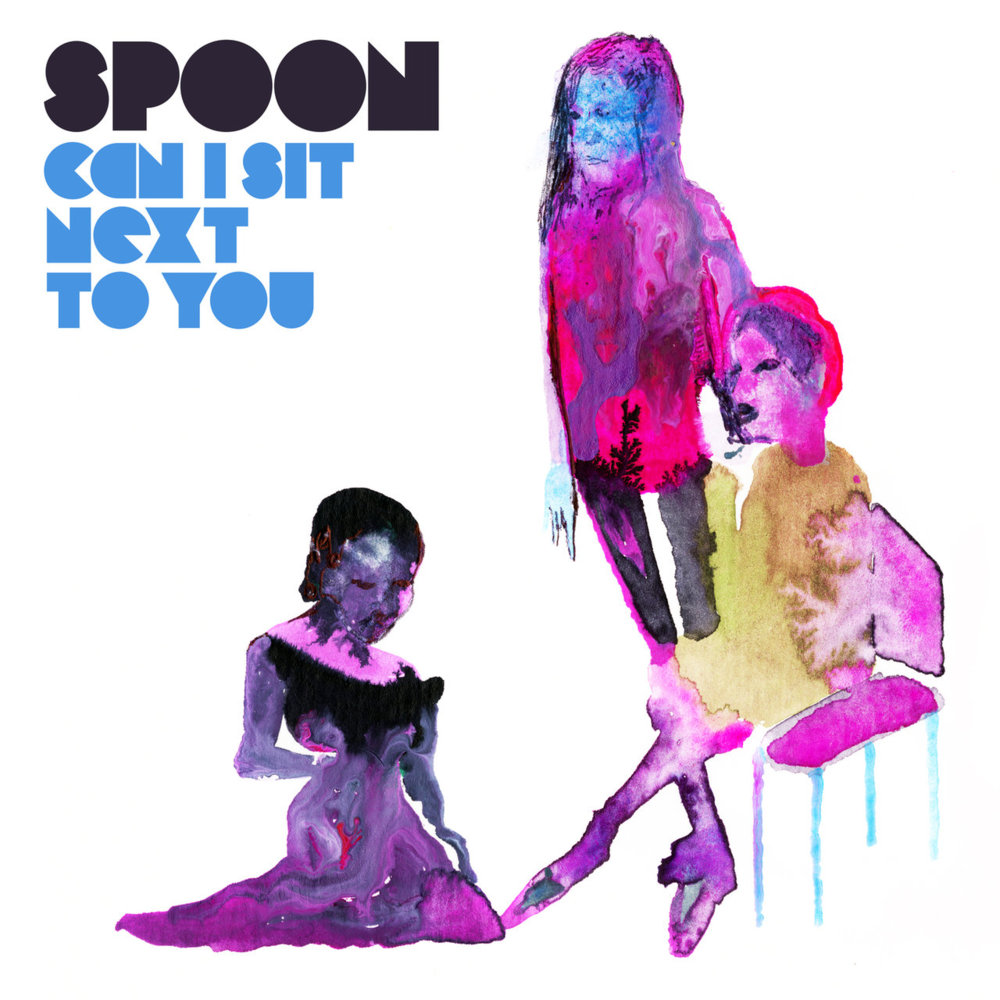
20. “Can I Sit Next To You”
[Hot Thoughts, 2017]
I’ve never seen Britt Daniel dance, but the image of it is clear in my head thanks to the quasi-funk/ indie dance track “Can I Sit Next To You”. The upbeat centerpiece of Hot Thoughts that’s also full of downbeat, nervous energy brings to mind Daniel shuffling across a starlit dancefloor, his face bedraggled (possibly from walking to Memphis alone, as he sings about) but his moves tight and almost choreographed.
Handclaps, slinky guitar chords, and catchy staccato piano all help the stylish prance – all of which seems at risk of falling away with the sudden introduction of a Middle Eastern-like string break. It’s like the whole track is spacing out from the glitz and glamor of the peacocky rhythm. If “Can I Sit Next To You” came on in a club or at any kind of dance event then some faces might come out confused at the end. Not Daniel though; he would just keep on dancing, worn down and soldiering on. – Ray Finlayson
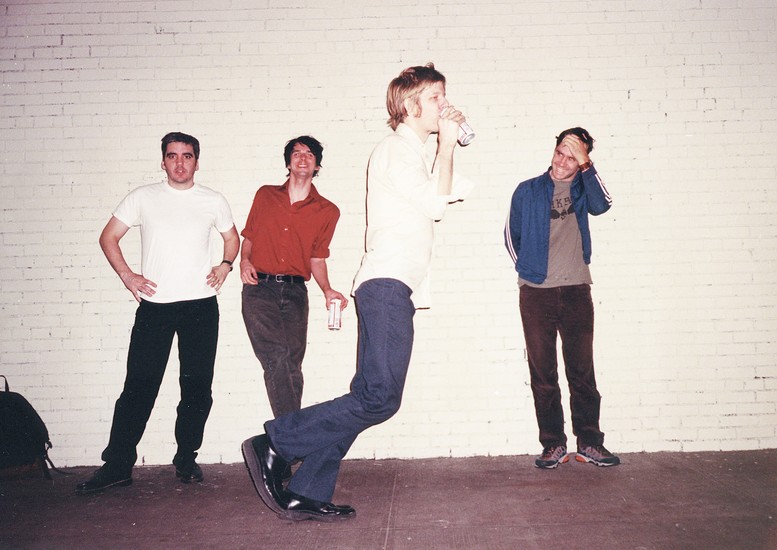
19. “Car Radio”
[A Series Of Sneaks, 1998]
Eight guitar notes open up “Car Radio”. That’s all the listener gets before being thrown into the song’s wild, reckless energy – an energy that succeeds thanks to Spoon’s impeccable tightness as a band. Britt Daniel puts this feeling into words – “Fooling around just a minor on the interstate” he sings, taking on the persona of a youngster with few fucks to give. All this happens in under a minute and a half; if A Series of Sneaks is filled with short songs that pop and crack like firecrackers, “Car Radio” is among the brightest.
Yet Spoon also make clear that brevity doesn’t equal shallowness. Daniel’s final lines “All acting tough / I’m just a user I don’t make any of this stuff” reveal a clear sense of self-awareness: either the persona is mature beyond their years or older than they want us to believe. It’s a sliver of insight that turns the song into a story, one that rushes by as fast as a car on the interstate. – Carlo Thomas
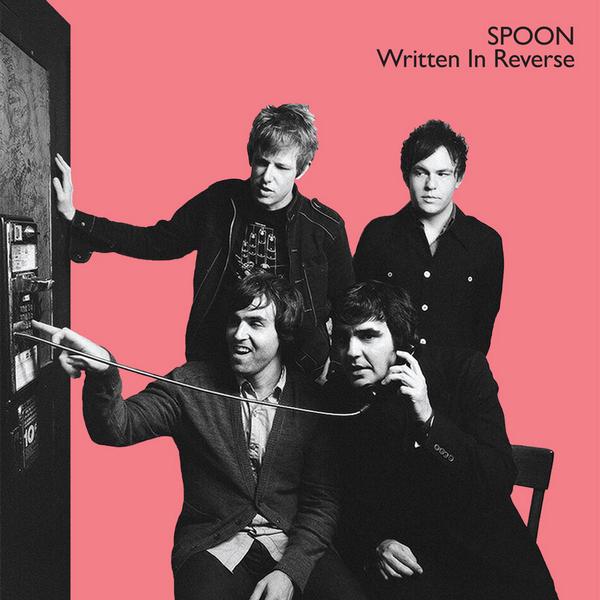
18. “Written in Reverse”
[Transference, 2010]
With a scronky swagger of bass and piano, “Written in Reverse” bursts the door open, Britt Daniel thundering into the room with a chip on his shoulder – one that he doesn’t just want to brush off, but power-slam through a glass table. His voice spitting lines as he throws death stares between resignation and resentment, he sounds completely done with playing defense. “Someone better call a hearse,” he impertinently gibes. “Written in Reverse” is one of those moments of fury and untethered indignation that there may not be a huge deal of across Spoon’s catalog – but this is no downfall at their end. Few moments with this baggy, almost carnivorous ire and frustration make “Written in Reverse” stand out all the more. – Ray Finlayson
17. “Metal Detektor”
[A Series Of Sneaks, 1998]
One of the earliest instances of Spoon’s ineffable ability to turn something minor into a whole vibe. Walking through a door and setting off a metal detector is something we’ve surely all done, but here Britt Daniel unspools it into a fantasy about robbing a bank. Or maybe he is literally describing walking into a bank ready to hold a stick-up? Either way, that moment when he steps through the blaring detectors is slowed down and made cinemaitc. It becomes an iconic moment, kind of like that bit where Neo and Trinity step through the metal detectors in the original Matrix – you know shit’s about to go down. In the case of “Metal Detektor” that could be a bank heist, it could just be that Daniel wants to buy a bag of chips. Either way, it’s awesome. – Rob Hakimian
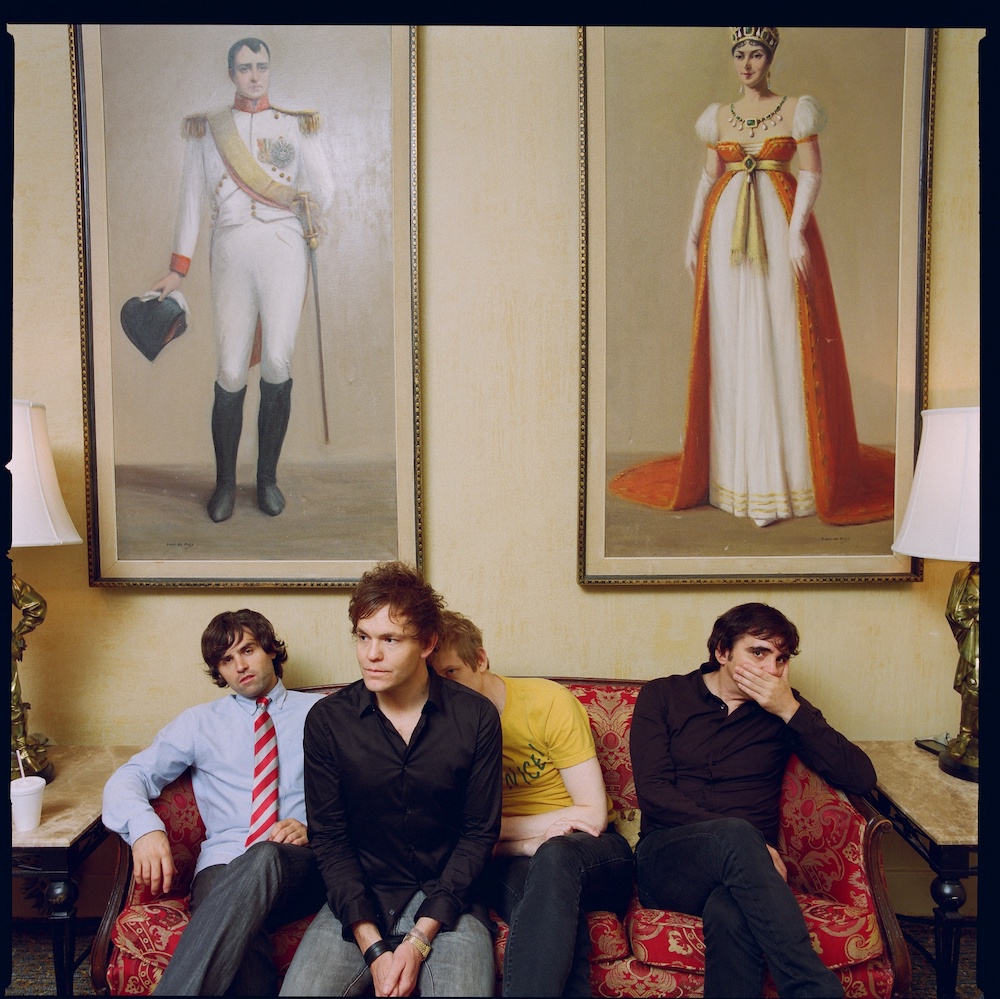
16. “Who Makes Your Money”
[Transference, 2010]
Spoon love to input minor details and leave out the major ones. “Who Makes Your Money” is case in point: “Japanese John, his face slight fur,” Britt Daniel begins, before going on to mention that he’s charming, “as he hands your wage to you”. It seems to put him in a fit of pique, Daniel concerned about this business relationship. But from there on out we get practically no more info; the rest of the story is up to the listener.
Gliding on minute ripples of guitar and daubs of electric piano, “Who Makes Your Money” suggests to me someone walking home from a tough shift at a low-paid job – maybe something degrading, even. But hell, money’s in hand, no more work for at least another 12 hours; a weight slightly lifts, the clouds part – freedom feels good. Let’s just put the stresses aside and coast on that sensation for a little while. Life can be beautiful, briefly. – Rob Hakimian
15. “Reservations”
[A Series of Sneaks, 1998]
A Series of Sneaks is often overlooked, despite it essentially acting as the yardstick for what the next decade would be for Spoon. Sneaks is the moment that, if you hadn’t been paying attention during Telefono, you were now. It’s the first classic by Spoon and established the Daniel/Eno collaboration as a force to be reckoned with. It focuses on brevity and sharp song writing.
“Reservations” is a perfect example of this, a morsel of hook-driven pop-rock amidst riskier cuts like “30 Gallon Tank”. What makes “Reservations” stand out is its model, and how it would fit in nearly any Spoon record afterward due to its aesthetic. It’s an early indicator of Spoon’s brilliance, and helped create the rubric for many of Spoon’s best songs. – Tim Sentz
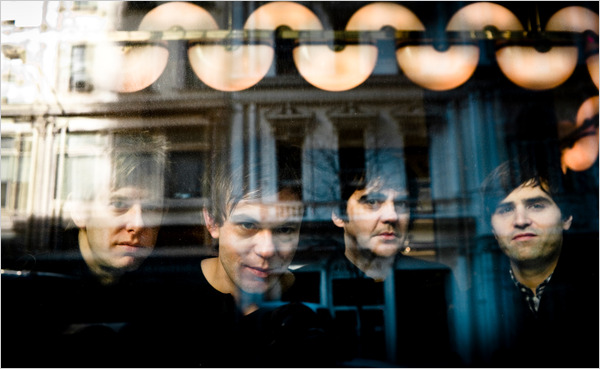
14. “Out Go The Lights”
[Transference, 2010]
Spoon’s ability to craft indie rock anthems that strut and swing across the strip is pretty well documented. I’ve always had a big fondness for the ones that really paint a specific, somewhat mysterious scenery. Transference’s “Out Go The Lights” meanders between the sweetness of a love ballad and more ominous twists and turns.
You’re immediately transported to some kind of place of gathering (“I came here for the noise”) as the narrator seems transfixed on a single person of interest as ruckus surrounding them moves in slo-mo. But “Out Go The Lights” gives you mere glimpses with a lot of gaps to fill in. The most revealing line Britt Daniel sings is “They fall for you like a brick / Oh but nobody loves you / Or woos you when you’re down or kicked”, kind of alluding to finally getting used to that person always “turning heads left and right”, but having a better grasp of the demons lurking beneath those rosy first impressions.
One of my favorite things is the way “Out Go The Lights” slowly bleeds out until running on empty, and a tentative piano melody joins in like a random bystander half-overhearing a conversation, but it never really helps take things off into a deeper connection. Which is more or less the endless dance of philandering and surveying that perpetuates throughout the night. – Jasper Willems

13. “Rainy Taxi”
[They Want My Soul, 2014]
With 2014’s They Want My Soul, Spoon released what is arguably their lushest and most sonically-oriented project. Nowhere is this more evident than on the album’s third track, “Rainy Taxi.” Bass and drums establish a firm yet rollicky foundation. Panned guitars duel, counter, and complement each other. As the piece unfolds, guitar parts grow more expressionistic, transitioning from chord progressions to explorative accents and flourishes, interplays that bring to mind the art-rock stylings of Verlaine/Lloyd on Marquee Moon and Moore/Ranaldo on Daydream Nation.
Eventually the guitars trade off pop rhythms and improvised noise runs. Bass and drums remain contrastingly unshakable amidst volatile atmospherics. “Rainy Taxi”, approached holistically, seamlessly blends experimentation and conventional songcraft, Britt Daniel navigating hyper-hooky melodies while delivering one of his more magnetic vocal performances. – John Amen
12. “Outlier”
[They Want My Soul, 2014]
By far my favorite song off They Want My Soul and the track that compliments the gorgeous album art the best for some reason. “Outlier” is an adrenaline-fuelled track that reminds me a lot of the cool retro-futuristic 80s action show themes (Knight Rider comes to mind). It leans heavily on Spoon’s gift for grooving the fuck out, and it bursts at light speed without swerving across the tunnelled expressway.
If I owned a car and could drive, I’d be blasting this one a lot more than I already do. I’ve frequently handpicked this track when DJing at Rotown, because it sounds so cool on the stereos and it works perfectly as a club anthem. I also love how the song immediately kickstarts with a line that indirectly slags off Garden State: “I remember when you walked out of Garden State / You had taste, you had taste / You had no time to waste.” That deserves a big fist pump in and of itself. – Jasper Willems
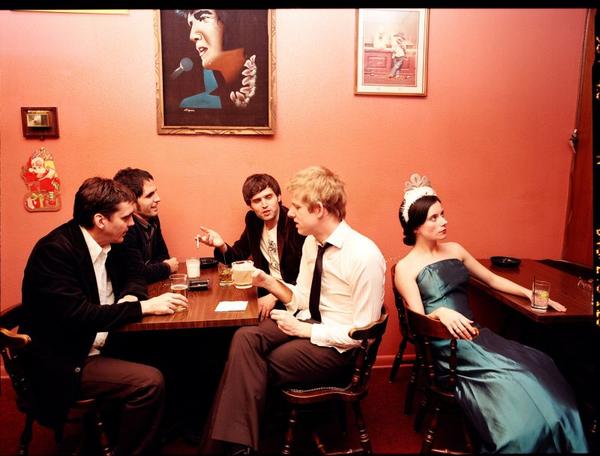
11. “I Turn My Camera On”
[Gimme Fiction, 2005]
Is “I Turn My Camera On” the funkiest, sexiest Spoon song? It’s certainly an easy case to make, Britt Daniel’s multi-tracked falsetto vocals uttering what sound like triple entendres (“You hit me like a tom”; “I saw them stars go off”) combined with THAT simple and seductive bass being enough to make you swoon. And yet, despite the undeniable swagger, Spoon never lean into the sound in a way that jeopardizes you taking the song seriously. The additional touches – from the single, ringing piano note to the fizzing guitar distortion at the end – show that they aren’t content following a simple trajectory. “You made me untouchable for life,” Daniel lures. We know how he feels; we just listened to “I Turn My Camera On.” – Ray Finlayson
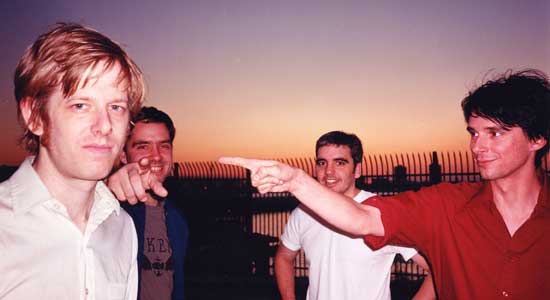
10. “Believing Is Art”
[Girls Can Tell, 2001]
“Believing is Art” just cruises. Fading in on a bed of luminous synth tones and featherlight guitar, you feel like you’re in the passenger seat while Britt Daniel drives, picking up nuggets of wisdom from him as you ride. He sounds like a youthfully aged hepcat with a lifetime’s worth of anecdotes that could fill a 1000-page book, which he boils down to two simple lessons; “Things everybody should know: the end will come soon / And love breaks your heart.”
Daniel wants you to know that it’s neither easy nor particularly difficult to tune into his wavelength, to become as sanguine and wise as he is. You just have to believe. Believe in what? That’s for you to discover. It’s an art. One that Spoon perfected decades ago. – Rob Hakimian
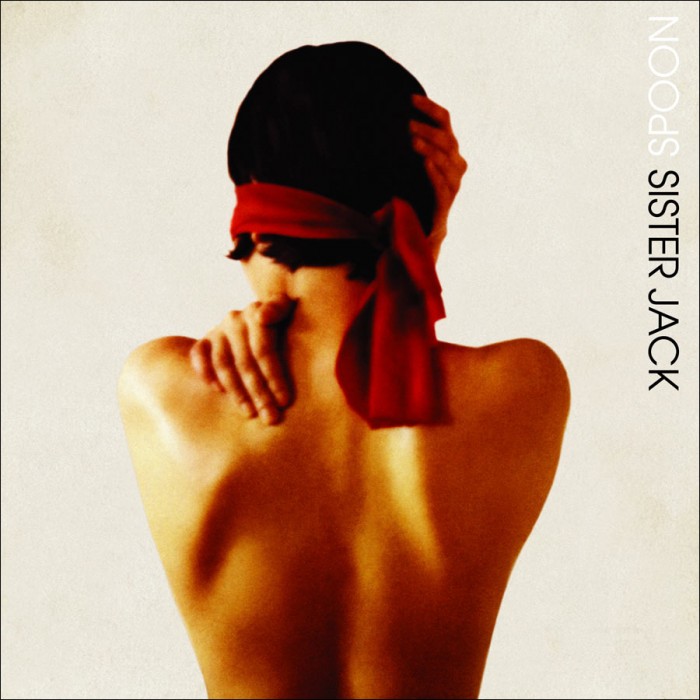
9. “Sister Jack”
[Gimme Fiction, 2005]
Of all their great Lennon-esque rockers, “Sister Jack” might well be Spoon’s best. Faintly orienting itself on bassist Joshua Zarbo’s past (who actually did play in a metal band called Requiem), but centering on the elusive Sister Jack, the track’s simple but infectious lead guitar and incredible dual vocal lines make it one of the great lead singles of the indie rock era. Meanwhile, the central figure of the track remains mysterious.
Depicted as a crossdresser in nun-drag in the accompanying video, the character seems to be sort of an authority figure to the music scene, causing the narrator performance anxiety. It’s reflected in a particularly ironic production choice: after finding himself “with my knees on the ground and a stick in my back”, the song drops most instruments to feature handclaps, suggesting the sound of metal buttocks being spanked. Naughty! – John Wohlmacher

8. “Inside Out”
[They Want Me Soul, 2014]
On an album full of standout tracks, “Inside Out” somehow manages to perhaps shine the brightest. It’s spaced-out landscape combined with the chattering drum machine that trucks you along past the scenery makes the whole track like a vivid, colorful trip or a dream that sticks with you for days after you wake from it. There’s what sounds like a harp flickering and glistening; it’s a rare moment where Spoon are immersively ethereal. “Time’s gone inside out / Time gets distorted with / There’s intense gravity,” Britt Daniel marvels. That’s certainly how the most dynamic moments of the song feel. Daniel and his bandmates only have themselves to blame for this though: they created this topography and its seemingly endless horizon. We’re just along for the ride – and what a ride it is. – Ray Finlayson
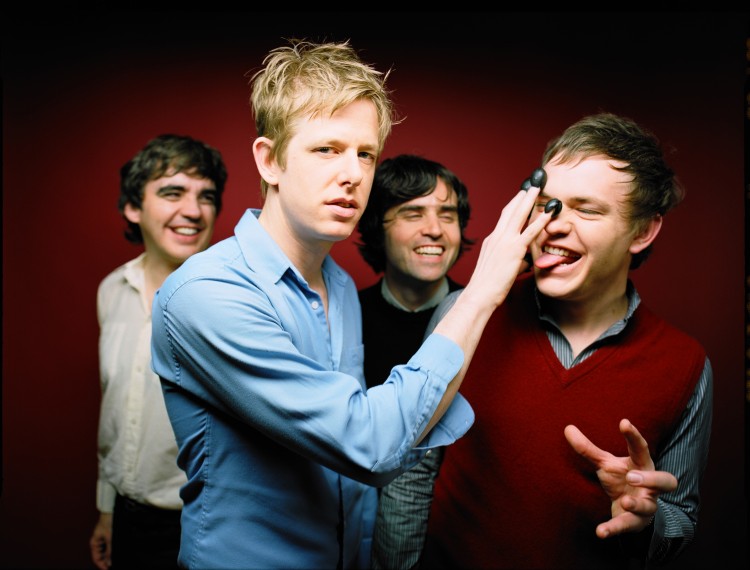
7. “The Ghost of You Lingers”
[Ga Ga Ga Ga Ga, 2007]
Bridging the gap between “Don’t Make Me a Target” and the lovable “You Got Yr. Cherry Bomb” required something memorable; something that didn’t necessarily outshine its bookended singles, but at least made for a compelling segue. In the grand scheme of Ga Ga Ga Ga Ga, “The Ghost of You Lingers” is an outlier due to its unsettling but welcomed deviation.
Britt Daniel has even stated it’s one of his favorite songs that they’ve done, and the title of the album was inspired by it given that it was the first song written for the album. “The Ghost Of You Lingers” stays true to its name too, hanging around in our psyches long after it transitions to “Cherry Bomb”.
The composition, with a brutal piano staccato rhythm, is jaggedly sharp, helping to convey Daniel’s association between bad relationships and drug withdrawals. The cerebral penetrations of the spine-tingling keys evoke visions of the poor instrument being pounded by fingers mashed into little bloody stumps. There’s nothing else like the track in their whole catalog, and Ga Ga Ga Ga Ga wouldn’t be the same without it. – Tim Sentz

6. “Don’t You Evah”
[Ga Ga Ga Ga Ga, 2007]
Spawning an early viral craze thanks to the mega-cute miniature robot Keepon, “Don’t You Evah” is one of those rare examples where a cover totally outperformed the original. Released as “Don’t You Ever” in 2006 by NY native The Natural History, Spoon’s version concentrates on a structural approach to production technique, prioritizing the bass line, bringing in guitar riffs one by one and including claps and snaps.
The Natural History version, which is more of a short, Kraut-adjacent jam, might not be the most memorable track, but Spoon approach the original’s structure like a mathematical equation that they add doodles onto, retaining its form but recognizing the inherent potential. It’s a joy to listen to Daniel’s voice leading the track’s melody, while the band’s rhythm section grooves in style and the guitar is free to explore. – John Wohlmacher
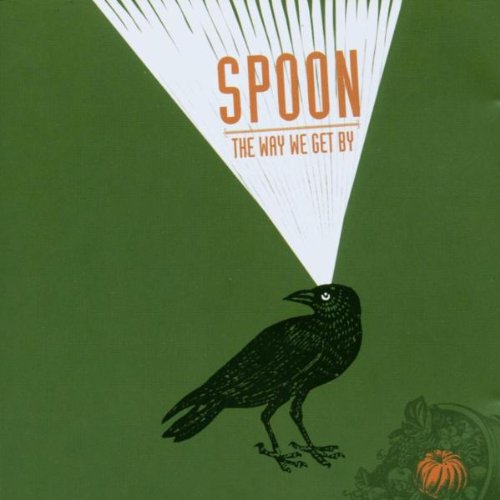
5. “The Way We Get By”
[Kill The Moonlight, 2002]
I’m sure I’m not the only person who first discovered Spoon when they heard “The Way We Get By” in an early episode of The OC. Already thinking it was the coolest show on TV, when I heard the needle drop and Britt Daniel open up with the lines “We get high in backseats of cars / break into mobile homes” over jaunty piano chords, the cool-o-meter in my brain pretty much exploded.
I found the song on Kazaa and listened to it on repeat. I treated it like a list of things I needed to do to become a cool ass motherfucker: go out in stormy weather, rarely practice discern (my concept of ‘discern’ was only loose), seek out the taciturn (definitely didn’t know what ‘taciturn’ meant) – I would just “get by”. Did I do any of it? Hell no, but when I listened to “The Way We Get By” I pictured myself doing it all – with sunglasses on and a joint in my mouth, of course.
Now almost 20 years later, if I were to take a mature, dispassionate look at the lyrics of “The Way We Get By” I would probably have a very different reaction – one of concern for this off-the-rails hillbilly. But instead, when I hear those bouncing chords fade in I’m transported back to the excitement of my youth, and living on the street as a cool ass motherfucker once again seems like a decent life goal. – Rob Hakimian
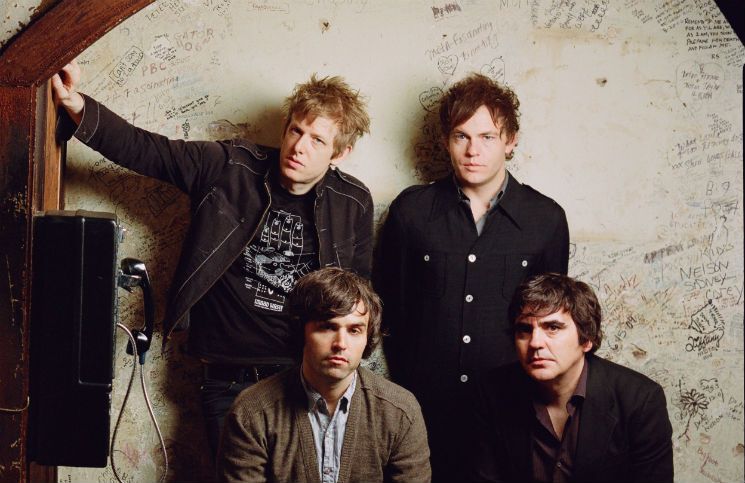
4. “Let Me Be Mine”
[They Want My Soul, 2014]
Getting real for just a moment, They Want My Soul soundtracked a very tumultuous time in my life, when a very bad breakup led to a year of near solitude (translated: I didn’t do a lot of socializing). “Let Me Be Mine” posits that love needs to be set free, and if it comes back it was meant to be. This was an inner struggle for me, since I was doing the breaking up, and maybe a fraction of me was hoping or praying that we could patch things up. There’s always doubt, always. But for some reason Britt Daniel knew just what to say to me during that.
All the talk about “taking a chunk of me with you” resonated, because while I did the leaving, you can’t leave a relationship without leaving something behind. Maybe I misinterpreted it then, and now I see it as a separation from a different angle. Either way, for an entire year “Let Me Be Mine” reminded me that while decisions were made, they were the right ones. – Tim Sentz
3. “I Summon You”
[Gimme Fiction, 2005]
Nostalgia is a powerful thing, but few can make it sound both as momentous and as breezy as Britt Daniel does in the opening lines of “I Summon You”: “Remember the weight of the world? / It’s a sound that we used to buy / On cassette and forty five.”
As we get older, we have more of those moments when you stop, take stock, and realise “fuck it’s been a long time since I felt like that.” Those moments when you realise that those people and places that once comprised your entire universe are now so far gone that they’ve become memories of a different existence. “Where are you tonight? How’d we get here?” you might ask your absent friends.
You’ve been through a lot, and undoubtedly so have they, living on the side of the country. Did you hear that they got locked up? That wayward amigo who just couldn’t catch a break. Those crooked cops always had it out for us, anyway. Who knows. If you can’t literally summon them to be with you, at least the music can transport you back there. – Rob Hakimian
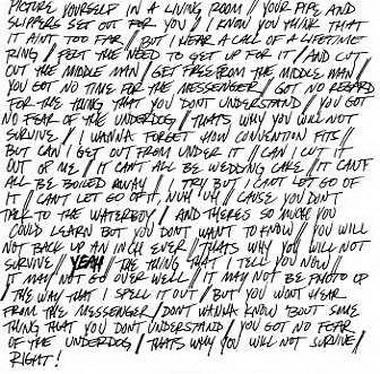
2. “The Underdog”
[Ga Ga Ga Ga Ga, 2007]
Almost undeniably Spoon’s most popular song, a cynic could say “The Underdog” is just a success because it’s packed with major chords, hand claps, a great hook and a horn section – but the way they’re utilized is pure Spoon. Combining these upbeat elements with a sneering, anti-establishment message is a genius move. Daniel baits us in with a vision of a not-too-distant retirement, chilling in a grand living room with pipe and slippers – then snatches it away by pointing out “you’ve got no fear of the underdog / that’s why you will not survive.”
Effectively, “The Underdog” is a joyous dance on the graves of all failed bigwigs who didn’t appreciate the tower of people holding their careers together, ultimately leading to their demise – “you don’t talk to the waterboy / and there’s so much you could learn but you don’t wanna know,” he pithily puts it. Bring in a horn section that sounds like a mariachi band hired from the nearest Mexican restaurant, get them to clap in time with the bouncing guitar beat, and send the song off with a flourish. Bang. You’ve got a classic. – Rob Hakimian

1. “Don’t Make Me a Target”
[Ga Ga Ga Ga Ga, 2007]
Originally intended for Gimme Fiction, “Don’t Make Me a Target” arrived at the tail-end of the Bush Jr. Administration. Attacking the controversial U.S. President who dragged a nation into an unnecessary war wasn’t anything new, but for Spoon that wasn’t the only point; “Target” is also a plea to not escalate the Iraq War further and make things worse.
This fell on deaf ears, naturally, but the energetic opener to the band’s sixth and arguably best album Ga Ga Ga Ga Ga contains locomotive-powered energy. It barrels down jaggedly almost veering off its own tracks, though not as bad as the war did.
Drummer Jim Eno recorded the tom-toms separately for “Target” with a different arrangement mic wise, which gives it a narrower sound, filled with echoing reverb. It starts innocently enough, but just as time increased the conflict, so does the intensity increase as we head deeper into the song. When it does slow down, it picks back up with some of Britt Daniel’s most chaotic guitar work, emphasizing the severity of the situation and the uneasiness of wartime. – Tim Sentz
Spoon’s 10th album Lucifer On The Sofa comes out this Friday, February 11, via Matador.

